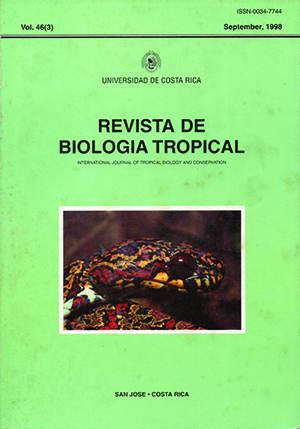Abstract
The capacity of Modiolus capax to delay spawning and to hold mature gametes for long periods, was analyzed in sexually mature organisms subjected to cold water and food rations higher than those for maintenance. The experimental group, 200 mussels collected in August from Babia de los Angeles, Baja California, Mexico, was subjected to 19±2°C, temperature comparable to that in the natural environment during autumn and early winter; the daily food rations, delivered in open flow, were equivalent to 0.5-1.0% of the mussel's dry soft body weight. The effectiveness of the experimental treatment was verified every month in a sample of 16 mussels; for contras!, a sample from Bahia de los Angeles was also analyzed. The assessed variables were general condition and gonadosomatic indices and for the histological study of the gonads, a maturity scale with eight stages was designed. In September the mussels from the natural environment were in the initial phase of post-spawning; by December they were in late post-spawning or rest. In the experimental group there were no spontaneous spawnin.ss and general condition and gonadosomatic indices remained consistently higher than in the natural environment, however, by the eight-week of treatment the gonads showed evidences of incipient reabsorption. It is proposed that the natural reproductive cycle, mass spawning in summer and rest in late autumn and early winter, might be limiting the mussel's capacity to retain mature gametes
##plugins.facebook.comentarios##

This work is licensed under a Creative Commons Attribution 4.0 International License.
Copyright (c) 1998 Revista de Biología Tropical
Downloads
Download data is not yet available.






